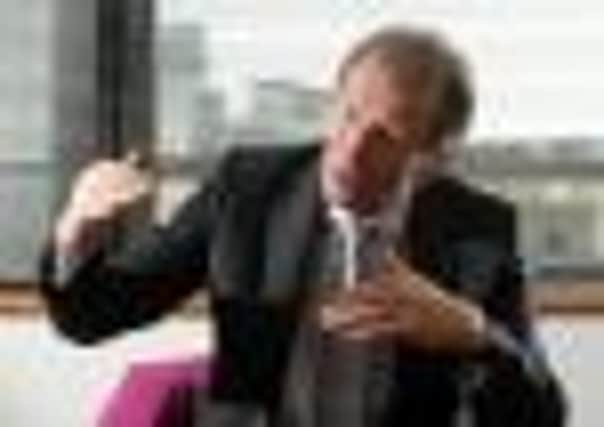Lord O’Donnell warns timing crucial on £375bn QE payback


The former head of the civil service said the head of the central bank “will need the support of everybody because it’s going to be a really tough job”.
Lord O’Donnell, in Leeds for a dinner hosted by PwC last night, also said greater collaboration is needed between the public and private sector and questioned the merits of Yorkshire’s competing bids to host the new Green Investment Bank.
Advertisement
Hide AdAdvertisement
Hide AdThe 60-year-old former Cabinet Secretary said he decided against applying for the post of Governor, one of the most powerful unelected roles in public life, after 33 years in the civil service.
Speaking about the challenges faced by whoever gets the job, he said: “We have got this slowdown affected by the euro crisis. That will I hope start to resolve and we will get a reasonably strong recovery going in the UK.
“When that starts to happen, the Governor and MPC have to do that thing that central bankers are required to do which is to spoil the party.
“The way they will have to do that is start by reversing quantitative easing. If QE has had the stimulative effect that the Bank suggests then obviously that will have the reverse effect.
Advertisement
Hide AdAdvertisement
Hide Ad“They need to do that to ensure that we don’t get this slowdown followed by an inflationary bubble so there’s a timing issue there. That’s the big thing – getting that timing process right.
“When it comes to reversing it, we don’t know very much about the impact it will have on the economy.
“Will be symmetrical? Will it be the same on the way down as it was on the way up?”
The Bank has purchased assets worth £375bn in an effort to stimulate the economy.
Advertisement
Hide AdAdvertisement
Hide AdIn addition, the new Governor will have to speak up for the UK’s interests as European policymakers seek to impose new financial regulation and avoid losing out to other financial centres such as North America, he said.
Lord O’Donnell accepted an advisory role earlier this year with the Canadian TD Bank.
“To me they show the future of how banking should be – built around the needs of customers and not around proprietary trading and the excesses of casino banking,” he said.
“Banks should be thinking about doing those things that really benefit customers.
Advertisement
Hide AdAdvertisement
Hide Ad“If your customers need a certain amount of hedging or whatever yes fine but you are not going into that as a profit-making entity in itself.”
Lord O’Donnell said the Government is starting to get to grips with the deficit while the UK’s biggest trading partner – the euro area – remains in crisis.
He said: “It’s the time at which we need to say to ourselves ‘how can we best get ourselves ready for that recovery?’ which I think is coming and ensure that we have got the right educated workforce, the right infrastructure in place, and we use this time of consolidation to get ourselves really fit for the competitive race which is about to start.”
He said the UK needs “21st century infrastructure” like ultra-fast broadband, claiming that “if you look to the future, that’s going to be the equivalent of the Roman roads”.
Advertisement
Hide AdAdvertisement
Hide AdHe said the rebalancing is moving the economy away from financial services and investment banking and forcing the UK to look for its comparative advantages.
But leadership is needed and in the absence of elected mayors – which he is in favour of – the public and private sectors must collaborate as a strong group, he said, drawing attention to Yorkshire’s competing bids for the Green Investment Bank, which ultimately went to Edinburgh. Roger Marsh, the head of PwC in Leeds who spent three years on secondment at the Cabinet Office with Lord O’Donnell, said: “The challenge here is that the population generally has been conditioned that the state will solve every problem and the machinery of the state – the civil service – are there to do that.
“Actually it’s the collaboration and the cooperation that will solve these problems.”
Lord O’Donnell said it is crucial to properly value the public sector.
Advertisement
Hide AdAdvertisement
Hide Ad“A lot of people are improving their productivity dramatically in the public sector. They are doing a fantastic job. They don’t get enough reward.”
As Cabinet Secretary from 2005 to 2011, Lord O’Donnell served under three Prime Ministers.